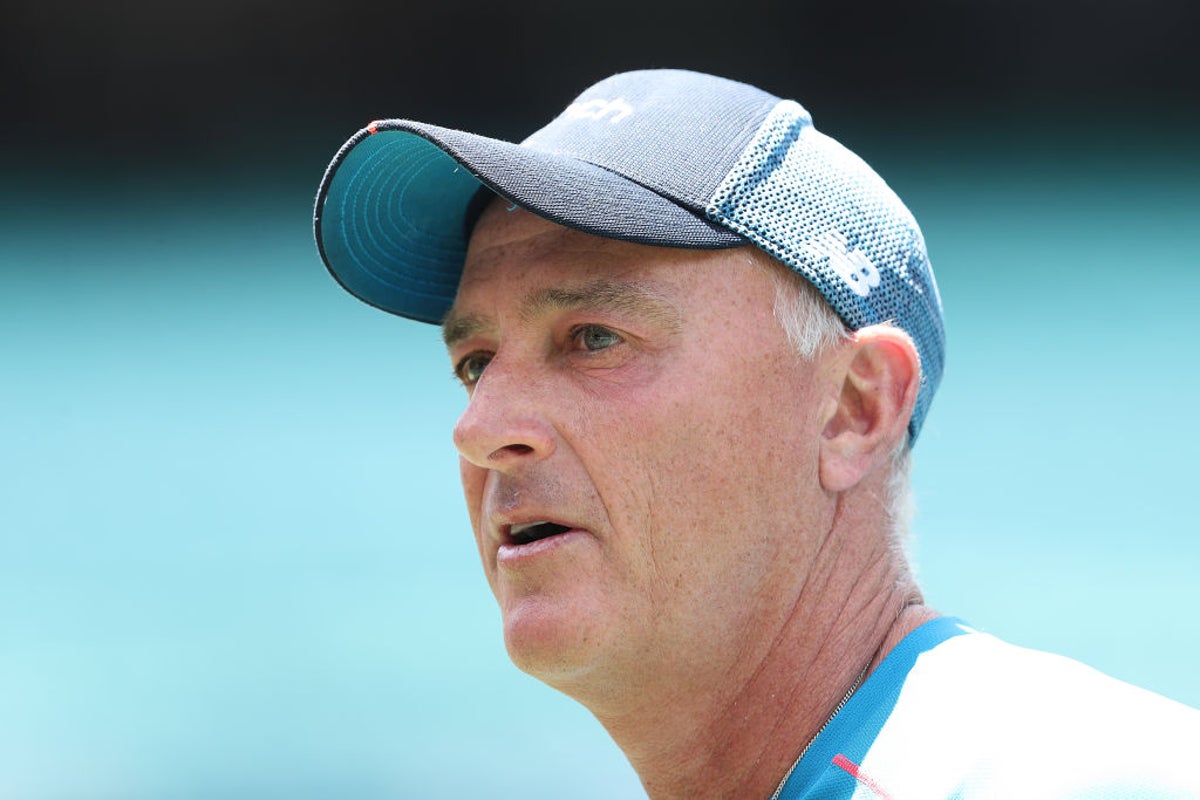Graham Thorpe would still be alive if his former employers provided the support he needed after his England sacking, according to his widow.
The late Thorpe, an England legend with over 100 Tests under his belt, took his own life in August 2024 just two-and-a-half years after an Ashes defeat saw him relieved of his duties by the ECB.
Amanda Thorpe, his wife of 17 years, is insistent that had Thorpe been offered means of staying connected to the cricket world in the pivotal months after his dismissal, “it is really clear (to her) that he would still be alive”.
“If he’d had just a little bit of the support framework there to lean on a bit to just transition a bit more, it would have made all the difference,” she said in an interview with talkSPORT.
At the inquest into his suicide, coroner Jonathan Stevens said the former England batsman’s exit “had a devastating effect on him” because he “had lost his cricket family”, with a 4-0 Ashes tour loss sparking his dismissal.
Spiralling into a depression after being sacked, an incident involving a leaked video of him mocking police officers in Australia that same year had also left him “absolutely gutted”, with Amanda saying he was “really teetering on the edge”.
While Stevens said there were “shortcomings” in his healthcare during the final months of his life, he could not “find any criticism in the ECB’s decision to terminate his contract”.
Having received mental health treatment for 18 months while still under contract, the ECB continued to provide this care after his dismissal, with Stevens noting that it had “funded treatment, hospital stays and extended his health treatment insurance”.
Ten online counselling sessions were organised as a three-month extension of his employee medical insurance, which was part of his severance package.
However, Amanda described the support provided by the ECB as “woeful”.
“As he went through these sessions, it was clear that he wasn’t coping. He was getting worse,” she added.
“We really did ask for help. I knew he needed more help than that. And, it wasn’t forthcoming.”
In March 2022, one month after his sacking, Thorpe’s counsellor made a written recommendation that he should be transferred to a residential home so to receive in-person care, which did not come to fruition.
Two months later, in May 2022, a failed suicide attempt left him in intensive care for two weeks. The ECB paid for a four-week stay in a north London hospital for neuro-rehabilitation upon learning this development.
Amanda believes this necessary level of support only came with Thorpe “five minutes from death”.
“It was too late, basically, after the crisis (in May 2022), he was very ill,” she said. “He nearly lost his life. He had a stroke. We don’t know how that affected his brain after that.”
Amanda noted that Thorpe was approached about an England scouting role by the ECB towards the end of 2022 – an offer she described as “tragic” and one that could have saved his life if it came sooner.
Demanding greater scrutiny on the manner in which her late husband was sacked, Amanda argues that while an employee’s medical privacy is important, it shouldn’t mean an employer is completely left in the dark about an illness.
“The ECB might say, well, we didn’t know how ill he was,” Amanda said. “Although the doctors he was under did know, but then they sort of said, oh, but there’s confidentiality. There’s got to be some connection (between the ECB and their doctors).”
An ECB spokesperson described Thorpe as ‘a deeply admired and much-loved person’, saying: “His loss has been felt deeply across the cricketing community and far beyond, and our thoughts and heartfelt sympathies remain with his wife Amanda, his children, and all those who loved him.
“Graham’s passing is a heart-breaking reminder of the challenges many face with mental health. His death was examined by a coroner; the inquest was held earlier this year with full support from the ECB. We have met with Amanda to discuss her concerns and have been in regular contact with her and the wider family.”
However, Amanda was left completely let down by her meeting with the ECB after Thorpe’s death, saying that she and her daughter left their encounter with the board in tears.
“It occurs to me that, unlike the other coaches’ wives who’ve told me they’ve been on the wrong end of the ECB treatment, I don’t have a husband who needs to work in cricket anymore… so I can speak up,” she said.
“But this is also about helping, you know, changing things and helping the next generation and making things better in the future.”
The Independent have contacted the ECB for comment.









